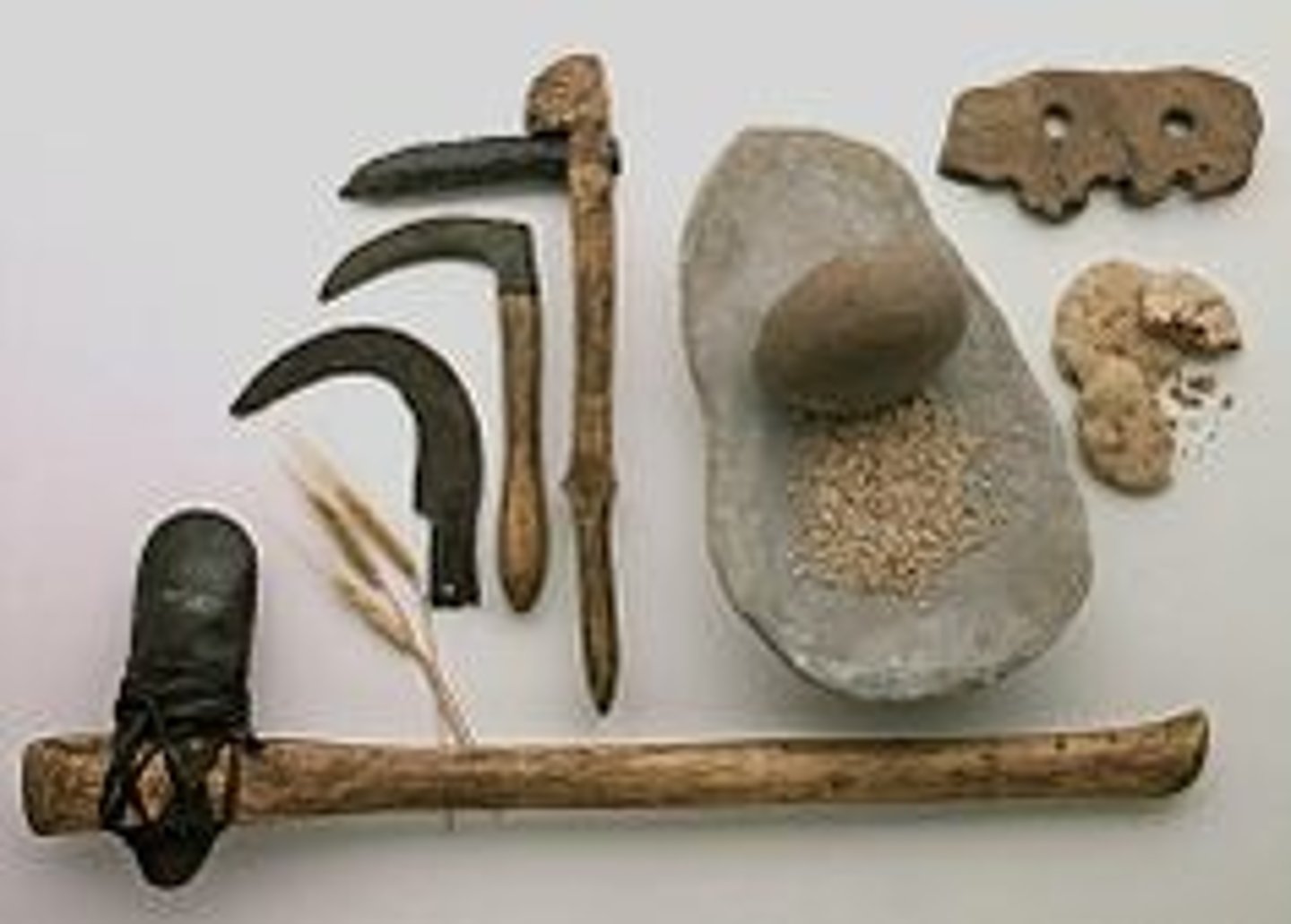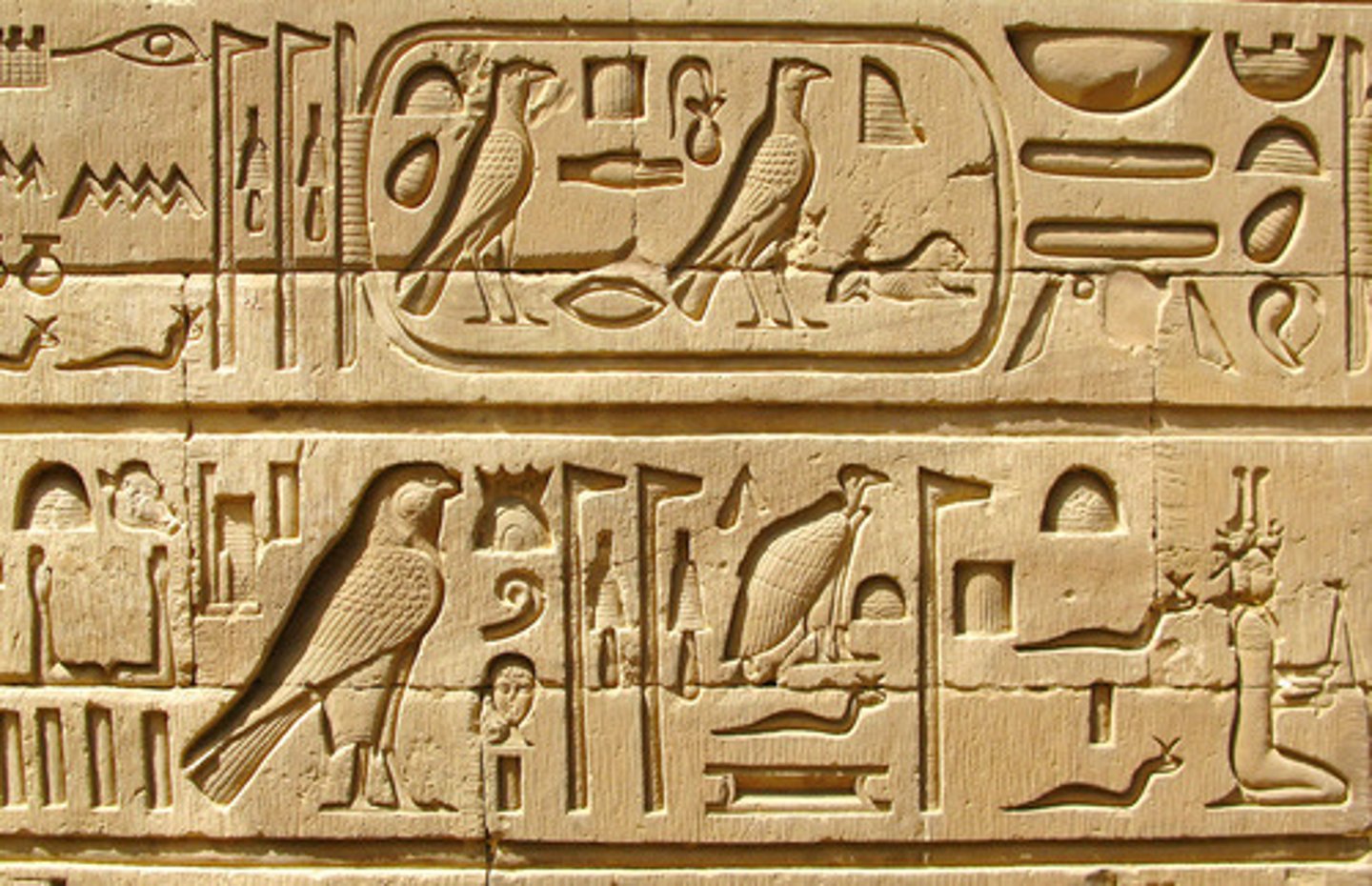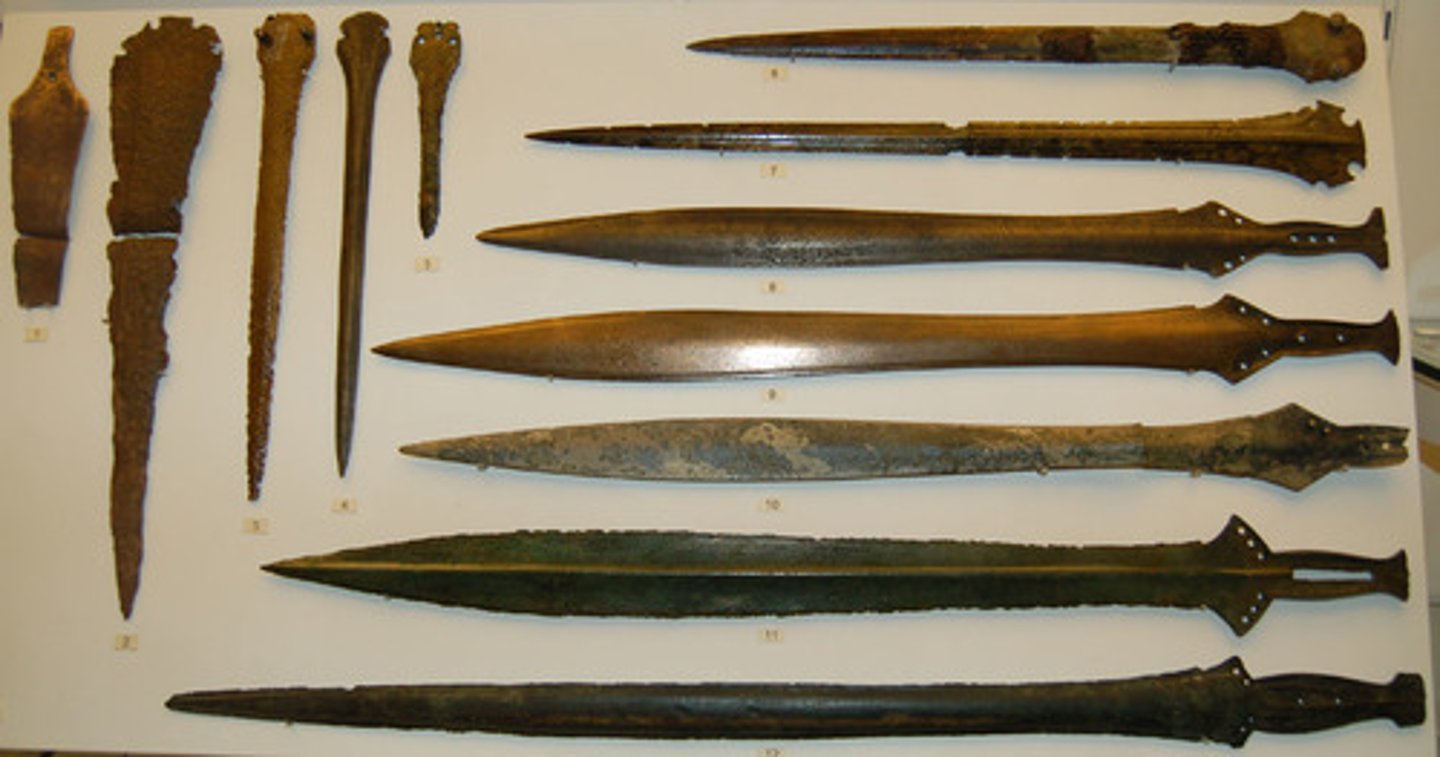General Concepts and Historical Developments (LESSON 1)
1/45
There's no tags or description
Looks like no tags are added yet.
Name | Mastery | Learn | Test | Matching | Spaced |
|---|
No study sessions yet.
46 Terms
ancient time
- The origin of human life can be traced to around 2 million years ago, and each era has a significant advancement.

The Valley of Egypt
They have records on the treatment of wounds and diseases, and even mathematical calculations

Bronze Age 3000 B.C
- The use of pigments from rocks and the discovery of copper ,they used copper for swords and other weapons.

ancient
middle
modern
3 History of Science and technology in the world
Mesopotamian cultures
earliest record of Science
Urbanization
is the development of large city.
Middle Ages
- Also known as the Dark Ages, it gave birth to many Scientific and Technological development.
The Renaissance Era
- Also known as rebirth of knowledge.
- The importance of printed texts, Arts, Architecture, and Engineering.
Industrial Revolution
light bulb replace oil lamps
radio
first car run with engine power
space rocket
electronic and computer era
modern science (6)
Spanish Colonial Period
-When the study of medicine was given priority. Also in the field of engineering in the constructing of bridges, churches and forts
- Formal Education founded scientific Institution
- Parish School
- Establishment of colleges
Parish School
Religion, Read, Writing, arithmetic and Music
Jesuits promoted meteorological
studies at Ateneo Municipal de Manila
Bureau of Government Laboratories
- they dealt with the study of tropical diseases. And on Dec. 8, 1933, the National Research Council of the Philippines was recognized.
American Period science
inclined towards agriculture, food processing, forestry, medicine, and pharmacy.
Marcos Era and Martial Law
- Science was given importance, In the amended 1973 constitution, Article XV, Section 9(1), he declared that the advancement of science and technology shall have priority in national "Development."
- Philippine Atmospheric, Geophysical and Astronomical Services (PAGASA) was established.
Jan. 23, 1967
- The date when Marcos directed the Department of Education to revitalize the Science courses in Public high schools.
1968
- the year when technology was recognized as the leading factor in economic development.
The National Science Development Board
- established the Philippine Atomic Energy Commission
1986
When the Mindanao and Visayas campuses of the Philippine Science High School were established to encourage careers in science and technology and to be accessible by the talented students.
STMP (Science and Technology Master Plan)
was formulated on Aug. 8 1998, its goal was to achieve industrialized country status for year 2000.
The National Science and Technology Authority
was replaced by the Department of Science and Technology (DOST)
Fifth Republic - Corazon Aquino
- Encourages Scientists and Investors to bring the Philippines to its former position as second to Japan in Science and Technology.
R.A. 6655 the Free Public Secondary Education Act of 1988
opened free education at the secondary level.
President Fidel V. Ramos Term
- In 1988 the Philippines was estimated to have 3000 competent scientists and engineers.
- The framework "Competence, Competitive Conscience: the Medium term plan of the Department of Science and Technology (1999-2004)
- Also they focused on getting the NIC status (Newly Industrialized Country)
Science and Technology Agenda for Development (STAND)
- which DOST created to task them to achieve NIC.
- exporting winners identified by the DTI
- domestic needs identified by the Presidential Council for Countryside Development
- Support industries
- coconut industry development
Magna Carta for Science and Technology Personnel (R.A. 8439)
Science and Technology Scholarship Law of 1004 (R.A. 7687)
Inventors and Inventions Incentives Act ( R.A. 7459)
The intellectual Property code of the Philippines ( R.A. 8293)
4 laws were enacted during President Fidel V. Ramos' Term
President Joseph Estrada
- The Clean Air Act of 1999 (R.A. No. 8749)
- The sustainable development of its natural resources, and Electronic Commerce Act of 2000 (R.A. No. 8792)
President Gloria M. Arroyo
- There were numerous laws and projects that concerned both environment and science to push technology as a tool to increase country's economic growth
- Helping the environment was the focus of the administration
- R.A. 9367 THE BIOFUELS ACT
Fililpinovation
was a coined term used to help the Philippines become an innovation hub in Asia.
Balik Scientist Law- R.A. 11035
on June 15, 2018 to solve the country's most pressing problems, such as climate-change mitigation.
North-South Commuter Railway (NSCR)
- one railway system serving commuters traveling to,from, and within Metro Manila, Central Luzon, and Calabarzon.
Jeepney Modernization Program
- The call out with the jeepney phase out.
Build Build Build Program
- Consisted of 75 projects, expected to be completed before the end of In 2020
Competence, Competitive Conscience
- the Medium term plan of the Department of Science and Technology (1999-2004)
stones and bronze
artifact found during the pre-historic times.
Used for chopping and scrapping
this primary found in eastern africa
Medicine/medical substance
spices
astrological chart/calendar
(3) earliest records of science came from Mesopotamian Cultures
mesopotamia (3500 B.C)
This greatly improve the transport of goods.
egypt
first city popped around 3000 B.C.
(3) signs of a well developed city
state of living (healthy)
state of state (structures, org)
state of economy (food production)
monarchy
form of government
the rediscovery of Copernicus
the era of geographic discovery
copernican hypothesis
- proposed by Nicolaus Copernicus
- Astronomical model that places the sun at the center of the universe with earth and other planets revolving around it.
FLAGLET
manipiulate wind energy
law of inertia
law of force and acceleration
law of action and reaction
3 laws of motion (Isaac Newton)
Theory of Relativity
theory by albert einstein
agriculture
food processing
forestry
medicine
pharmacy
(5) American Period Science inclined towards: